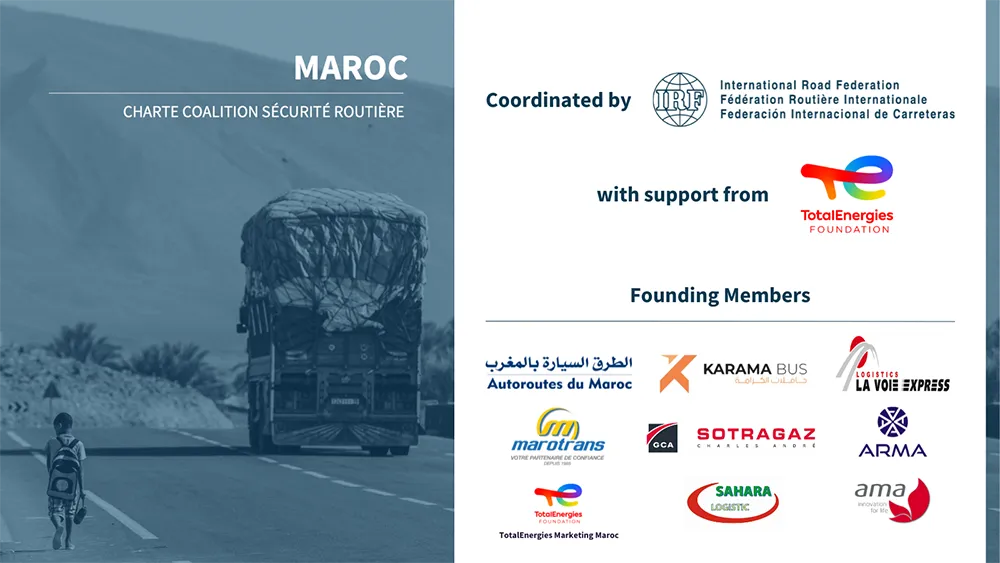The European Transport Safety Council (ETSC) welcomed the launch of the UN Decade of Action for Road Safety, saying it will enable the European Union to join forces in tackling road safety at a global level. The UN move aims to reduce by 50% the projected increase in road deaths by 2020, and was developed with the support of the World Health Organisation (WHO), which predicts that road traffic injuries will rise to become the fifth leading cause of death by 2030 in the world. It demanded action to correct t
April 12, 2012
Read time: 3 mins
The 1197 European Transport Safety Council (ETSC) welcomed the launch of the 3447 UN 3439 Decade of Action for Road Safety, saying it will enable the 1116 European Union to join forces in tackling road safety at a global level.
The UN move aims to reduce by 50% the projected increase in road deaths by 2020, and was developed with the support of the3263 World Health Organisation (WHO), which predicts that road traffic injuries will rise to become the fifth leading cause of death by 2030 in the world.
It demanded action to correct the situation now to prevent the carnage from increasing by more than 65% over the next 20 years.
According to some of the world's leading road safety experts, a significant coordinated effort of this kind has the potential to save five million lives and to prevent 50 million serious injuries over the next ten years.
Every year 1.3 million people are killed and 20-50 million are injured in road crashes around the world. In the WHO European region alone, 120,000 people are killed and 2.4 million injured in road collisions each year, yet the region is home to three countries with the safest roads in the world: Sweden, the UK and the Netherlands.
"The high level of road traffic deaths represents a global health problem. The EU has one of the best records on road safety. With this comes a responsibility to ensure that the outcome of this first UN Decade for road safety strikes a right balance between safety and mobility. Every life lost on a road is a life too many," says Antonio Avenoso, ETSC executive director.
The United Nations General Assembly has set the goal for the decade "to stabilise and then reduce the forecast level of road traffic fatalities around the world" by 2020, which is in line with the EU's new target to halve road traffic deaths by 2020 and adopting Vision Zero as its new long term goal for 2050.
By contrast, in OECD (Organisation for Economic Cooperation and Development) countries the number of road fatalities has fallen dramatically over the past decade, in some cases by 50%.
The annual summit of transport ministers at the1102 International Transport Forum 2011 in Leipzig, Germany, presented contributions to the Decade of Action, and was told: "But even in the developed world far too many still fall victim to traffic: more than 100,000 men, women and children die on the roads of OECD countries, around 300 every day." The ITF's work focuses on overcoming the disconnect between the advances seen in some countries and the worsening situation in others, by facilitating knowledge transfer, encouraging best practices and benchmarking.
"We are pleased to contribute to this important and necessary UN initiative. We have a five decade-long track record in developing and introducing effective road safety policies, and will bring our experience in this field to the table during the Decade of Action," said Jack Short, Secretary General of the International Transport Forum, at a joint press conference with the WHO.
The UN move aims to reduce by 50% the projected increase in road deaths by 2020, and was developed with the support of the
It demanded action to correct the situation now to prevent the carnage from increasing by more than 65% over the next 20 years.
According to some of the world's leading road safety experts, a significant coordinated effort of this kind has the potential to save five million lives and to prevent 50 million serious injuries over the next ten years.
Every year 1.3 million people are killed and 20-50 million are injured in road crashes around the world. In the WHO European region alone, 120,000 people are killed and 2.4 million injured in road collisions each year, yet the region is home to three countries with the safest roads in the world: Sweden, the UK and the Netherlands.
"The high level of road traffic deaths represents a global health problem. The EU has one of the best records on road safety. With this comes a responsibility to ensure that the outcome of this first UN Decade for road safety strikes a right balance between safety and mobility. Every life lost on a road is a life too many," says Antonio Avenoso, ETSC executive director.
The United Nations General Assembly has set the goal for the decade "to stabilise and then reduce the forecast level of road traffic fatalities around the world" by 2020, which is in line with the EU's new target to halve road traffic deaths by 2020 and adopting Vision Zero as its new long term goal for 2050.
Emerging countries
Around 90% of road fatalities occur in emerging and developing countries. The mixture of population growth and higher numbers of vehicles due to rising incomes are proving a deadly combination, as infrastructure and regulatory environment have difficulty keeping pace.By contrast, in OECD (Organisation for Economic Cooperation and Development) countries the number of road fatalities has fallen dramatically over the past decade, in some cases by 50%.
The annual summit of transport ministers at the
"We are pleased to contribute to this important and necessary UN initiative. We have a five decade-long track record in developing and introducing effective road safety policies, and will bring our experience in this field to the table during the Decade of Action," said Jack Short, Secretary General of the International Transport Forum, at a joint press conference with the WHO.







